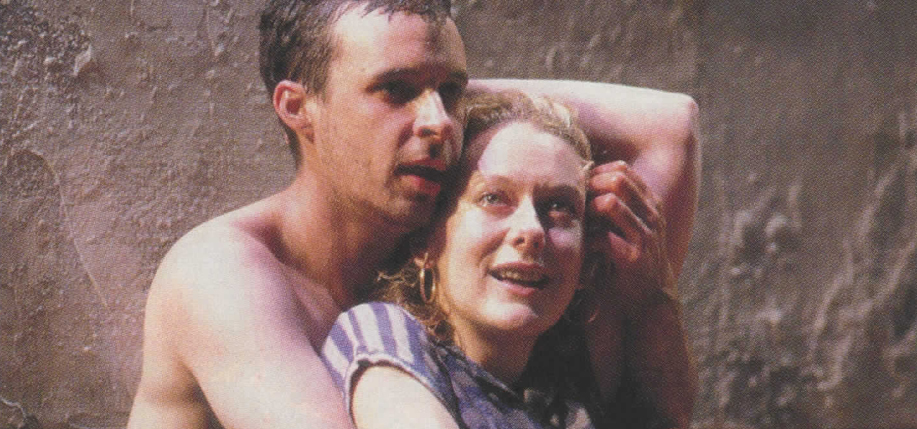The Abbey Theatre is in crisis as it makes its centenary tour of the U.S. Artistic Director Ben Barnes is stepping down amid financial difficulties, but the U.S. tour is proving to be a commercial and theatrical success.
The touring group is putting on J.M. Synge’s Playboy of the Western World, a play that caused extreme controversy and riots when it premiered in Dublin in 1907, and on the first Abbey tour of the U.S. in 1911. Barnes commented on the 1911 riots, “The play really shocked audiences because they would have been weaned on musicals and melodrama.”
Anna McMullan, Fulbright Scholar at NYU and professor at University College Dublin, said, “The use of the word `shift’ absolutely shocked people,” shift meaning undergarments. And Irish audiences were, understandably, upset at being portrayed in such an unflattering light by an Irish playwright. But Nick Grene, an international expert on Synge and professor at University College Dublin, added about the Abbey, “it was giving people that had been colonized for centuries a sense of identity.”
On October 14, McMullan and Grene took part in a panel discussion entitled “The Abbey Theatre and Twentieth Century Ireland,” which was held at Glucksman Ireland House prior to Playboy’s seven-night run at NYU’s Stirwell Center.
Playboy of the Western World is the story of Christy Mahon, a youth who is celebrated as a hero when he tells a western village that he has killed his terror of a father. However, when his father shows up, public opinion moves against Christy. This time the locals try to throw him in jail but his father fights to keep him out. The Mahons head home with the father viewing his son as an equal, and Christy, his manhood affirmed, leaving Pegeen Mike, who had tried to win his affection, distraught over her loss.
It was W.B. Yeats who encouraged Synge to go to “a wild island off the Galway coast and study its life” because that life “had never been expressed in literature.” Synge’s job, Yeats said, “was to say everything the people did not want to have said.”
Though the play was condemned when it premiered at the Abbey in 1907, in later years it would be seen as a symbol of the peasants’ own deep-seated urge to reject the tyranny in their own lives, and Synge would be recognized as an important figure in the Irish renaissance.
Playboy has been produced countless times at the Abbey, and Barnes felt that for the centenary program a reworking of some parts was necessary. “It’s a play with fantastic language,” he said. “There were lots of opportunities in the third act to stretch the theatricality of the play.” He specified that one of the fight scenes between the Mahons was moved onstage in order to enhance the audience’s view of the play.
The production, particularly Cathy Belton’s portrayal of Pegeen Mike, has received widespread critical acclaim, delighting audiences in Connecticut, Philadelphia, Boston, and New York. It will close in Chicago in December. The theater group will then return home to Ireland, and begin discussions about its future.
For now, though, the Abbey is continuing to do its usual phenomenal job of entertaining audiences in its home away from home. “The Abbey has a history of touring in the United States going back to 1911,” Barnes said. “We felt it was important to press that button in our centenary celebrations.” ♦


Leave a Reply